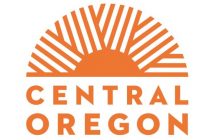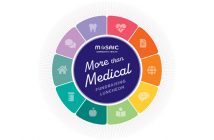(Photo above | Cascade Business News)
Answer: Yes. Unless you absolutely cannot afford to set aside any dollars whatsoever, you should contribute to your employer’s 401(k) plan. A 401(k) plan is one of the most powerful tools you can use to save for your retirement.
The first benefit is that your pre-tax contributions to a 401(k) plan are not taxed as current income. They come right off the top of your salary before taxes are withheld. This reduces your taxable income, allowing you to pay less in taxes each year. You’ll eventually pay taxes on amounts contributed when you withdraw money from the plan, but you may be in a lower tax bracket by then. You may even qualify for a partial tax credit for amounts contributed.
Furthermore, money held in a 401(k) plan grows tax deferred. The investment earnings on plan assets are not taxed as long as they remain inside the plan. Only when you withdraw those earnings will you pay taxes on them (again, possibly at a lower rate). In the meantime, tax-deferred growth gives you the opportunity to build a substantial 401(k) balance over the long term, depending on investment performance.
If you’re lucky, your employer will match your contributions up to a certain level (e.g., fifty cents on the dollar up to six percent of your salary). You typically become vested in your employer’s contributions and related earnings through years of service (the details depend on the plan). Employer contributions are also pretax and are basically free money (once you’re vested), so you should try to take full advantage of them. If you fail to make contributions and receive no match, you are actually walking away from money your employer is offering to you.
Another feature that many 401(k) plans offer is the ability to borrow up to 50% of your vested balance (or $50,000, if less) at a reasonable interest rate. You can use a plan loan to pay off high-interest debts or meet other large expenses, like the purchase of a car. You typically won’t be taxed or penalized on amounts you borrow as long as the loan is repaid within five years. Immediate repayment may be required, however, if you leave your employer. Loan payments are deducted from your paycheck with after-tax dollars.
Finally, 401(k)s are a very convenient and reliable way to save. You decide what percentage of your salary to contribute, up to allowable limits. Your contributions are deducted automatically from your salary each pay period. Because the money never passes through your hands, there’s no temptation to spend it or skip a contribution here and there. Most plans allow for contributions as small as 1 percent of your paycheck.
Note: Your employer may also allow you to make after-tax “Roth” contributions to your 401(k) plan. Because your Roth contributions are after tax they don’t reduce your current income, like pre-tax contributions. But because they’re after-tax, your Roth contributions are always tax free when paid out to you. But the main attraction of Roth 401(k) contributions is that the earnings on your contributions are also tax free if your distribution is “qualified.” In general, a distribution is qualified if it is made more than five years after the year you make your first Roth 401(k) contribution, and you are either 59½ or disabled when you receive the payment.
Provided by Ed Wettig, CFP, Wettig Capital Management which offers investment management, financial planning and retirement income strategies. Securities, insurance and investment advisory services offered through Royal Alliance Associates, Inc. Member FINRA/SIPC. Wettig Capital Management is a marketing designation.
www.wettigcapital.com





